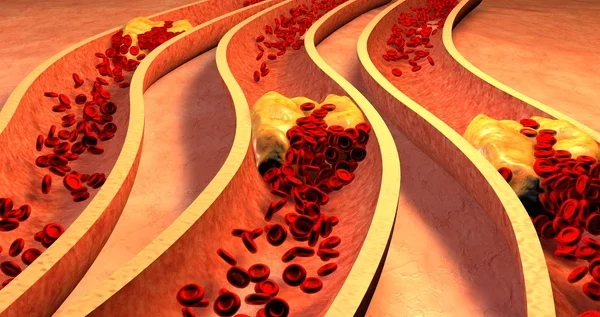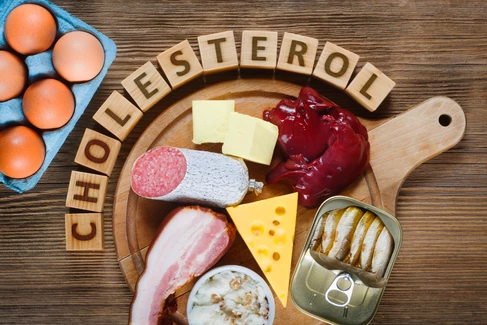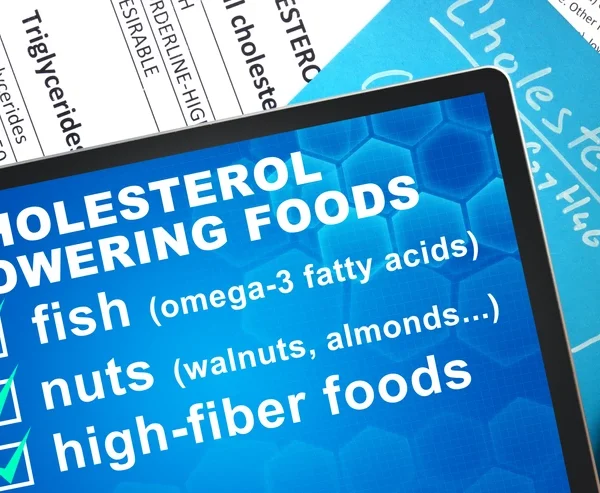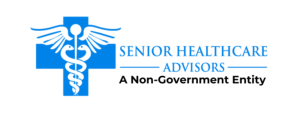Good Versus Bad Cholesterol: What’s The Difference?
We have all heard the term “cholesterol,” but many of us only vaguely understand what it means. When discussing heart health, most of us know that cholesterol is a common theme. You may wonder why you should be interested in learning about cholesterol. Your cholesterol levels are crucial for your overall health, including your heart.
What is Cholesterol?
Cholesterol is a waxy substance found in every cell in your body. Because it is associated with heart problems, cholesterol usually gets a bad rap. But did you know that cholesterol is a critical substance in maintaining cell structure, producing Vitamin D, and synthesizing many hormones such as adrenal, estrogen, and testosterone?
There are two sources of cholesterol – your foods and your liver. Dietary cholesterol is found in foods. When you consume meat, dairy products, or eggs, you get cholesterol from an outside source. Your liver provides all of the cholesterol your body needs.
There are 2 Types of Cholesterol

HDL CHOLESTEROL: (H) STANDS FOR HEALTHY
LDL CHOLESTEROL: (L) STANDS FOR LOUSY
Good cholesterol (HDL) and bad cholesterol (LDL) are two lipoproteins found in the human body.
High-Density Lipoprotein or HDL (Good Cholesterol) gathers excess cholesterol from your body and carries it back to the liver, where it is broken down and expelled from your body. This means your HDL helps protect you from strokes and heart attacks.
Low-Density Lipoprotein or LDL (Bad Cholesterol) causes a build-up of fats in your blood vessels. LDL causes narrowing and hardening of your arteries, making the passage of blood to your heart and other vital organs hindered, and eventually causes damage of the heart’s muscles, heart attack, or cardiac arrest.
The third component of cholesterol, triglyceride levels, function as extra calories that are deposited as fat in the blood. Triglycerides can accumulate in the blood flow when you consume more calories than you burn, raising your risk factors of heart attacks.
LDL, HDL, and total cholesterol can all be assessed with a blood test. Since high cholesterol typically has no outward signs, it is crucial to get regular checks.
CLICK HERE: https://seniorhealthcareadv.com/
Get Tested!

We tend to eat foods that are not the healthiest, which increase LDL levels (Bad Cholesterol) in our bodies. Everyone should have their cholesterol levels tested! Cholesterol testing should be a part of your regular check-ups and considered a preventative healthcare measure.
What if your cholesterol levels do not fall within health limits?
If your cholesterol levels fall within healthy limits, you are good to go. Continue eating healthy and exercising to keep it that way. If they do not fall within healthy boundaries, don’t panic! All you need is a bit of discipline and determination. **Caution** If you do not take measures to correct your cholesterol levels, you stand a much higher chance of developing heart disease.
Lifestyle changes go a long way in improving your heart health.
Measures you can take to prevent high cholesterol or to lower cholesterol levels:

- Lower your intake of saturated fat. Foods like whole milk and other full-fat dairy products, and red meat increase your cholesterol level. So, be mindful of eating those foods in moderation. For instance, trade your steak for a grilled chicken breast, and switch to skim milk.
- Stay away from trans fats. This includes partially hydrogenated vegetable oils, fast foods, margarine, commercial cookies, and bread. **Reminder** Never heat cooking oils to the point of smoking!
- Consume more Omega 3 fatty acids. Omega 3 fatty acids help to increase your good cholesterol or HDL and have substantial health benefits. You can find these healthy fats in mackerel, salmon, flax seeds, etc.
- Increase your soluble fiber intake. Soluble fiber prevents LDL deposits in your arteries. Eat beans, oats, apples, and pears regularly every day. “an apple a day”!
- Exercise, such as 30 minute daily walks!
- Use suitable cooking oils. Extra virgin olive oil, peanut oil, or avocado oil have the highest monounsaturated fat contents among cooking oils.
We Can Help!
Here at Senior Healthcare Advisors, we specialize in maximizing Medicare benefits! We are here to guide you in understanding and enrolling in the Medicare benefits you are entitled to and qualify for. Give us a call today.





